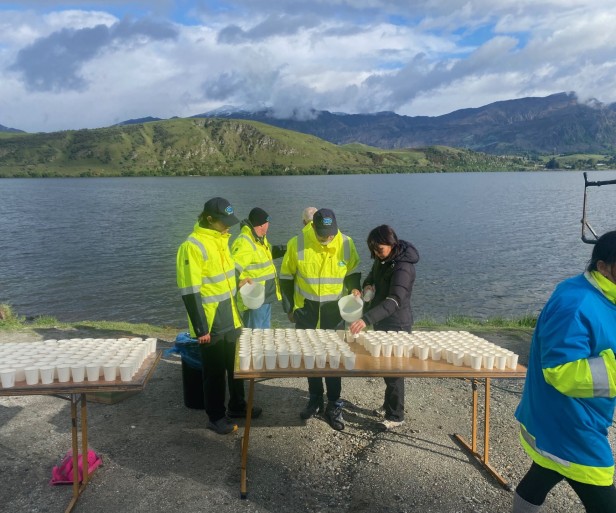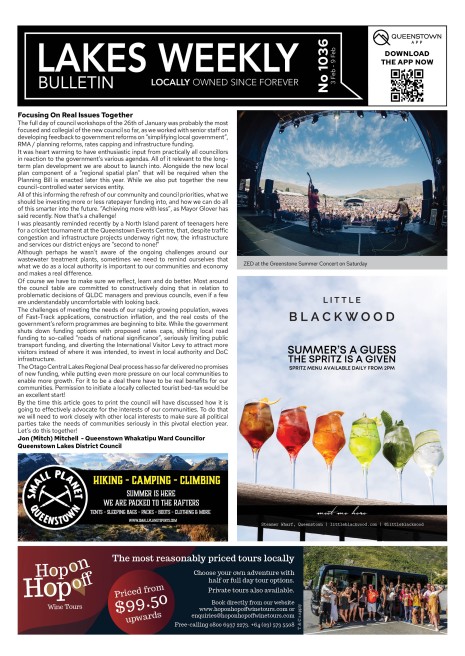Wastewater consent push

Queenstown Lakes District Council wants to push its controversial river wastewater consent directly to the Environment Court.
The council has applied for retrospective consent to discharge treated effluent into the Shotover River, which flows into the Kawarau River, following the Shotover Wastewater Treatment Plant debacle.
It used emergency powers to begin pumping at least 12,000 cubic metres of treated sewage into the Shotover River per day, back in late March.
Now, it wants the retrospective consent for that action determined by the Environment Court, rather than Otago Regional Council.
Council Property & Infrastructure boss Tony Avery says that would be the most efficient and robust approach.
“Shotover River is a significant natural resource and comes with considerable cultural and community values. As such, we believe it is beneficial for the evaluation of and decision on Council’s application to be made in an experienced and well-resourced Court,” Avery says.
“If approved, the request would mean ORC would no longer be the first instance decision-maker on the application, as the Environment Court would take that role. The usual process, including public notification, submissions timeframes, and assessment of the application would still be under ORC’s jurisdiction.
The need to discharge into the Shotover River comes from the plant's failed dispersal field, which resulted in consistent ponding and treated wastewater being discharged into the river via an unconsented overflow pipe.
ORC has already taken QLDC to the Environment Court over those issues, which resulted in the Environment Court imposing seven pages of separate enforcement orders, including upgrades, contingency measures, timeframes and milestones to be met, earlier this month.
QLDC was also pinged $235,000 for legal costs.
Now it's applied to ORC for the Environment Court to take over the retrospective discharge consent application.
A QLDC spokesperson says the direct referral would be more cost effective, faster and allow for cross examination, not available under the council-run process.
"Ultimately, direct referral of the application would help to provide an efficient and comprehensive decision from a neutral arbiter already well acquainted with the matter through enforcement order proceedings lodged by Otago Regional Council," the spokesperson says.









